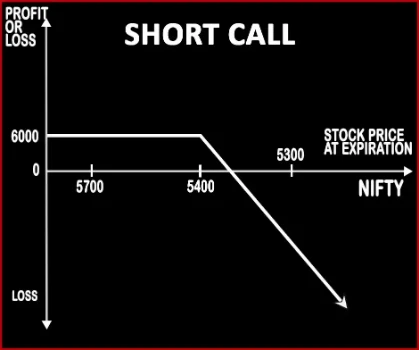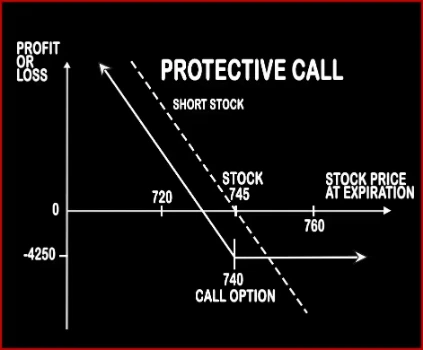Compare Strategies
| SHORT CALL | PROTECTIVE CALL | |
|---|---|---|

|

|
|
| About Strategy |
Short Call Option StrategyA trader shorts or writes a Call Option when he feels that underlying stock price is likely to go down. Selling Call Option is a strategy preferred for experienced traders. However this strategy is very risky in nature. If the stock rallies on the upside, your risk becomes potentially unquantifiable and unlimited. If the strategy |
Protective Call Option StrategyThis strategy is simply the reversal of the Synthetic Call Strategy. This strategy is implemented when a trader is bearish on the market and expects to go down. Trader will short underlying stock in the cash market and buy either an ATM Call Option or OTM Call Option. The Call Option is bought to protect / hedge the upside risk on the short position. The .. |
SHORT CALL Vs PROTECTIVE CALL - Details
| SHORT CALL | PROTECTIVE CALL | |
|---|---|---|
| Market View | Bearish | Bearish |
| Type (CE/PE) | CE (Call Option) | CE (Call Option) |
| Number Of Positions | 1 | 1 |
| Strategy Level | Advance | Beginners |
| Reward Profile | Limited | Unlimited |
| Risk Profile | Unlimited | Limited |
| Breakeven Point | Strike Price of Short Call + Premium Received | Sale Price of Underlying + Premium Paid |
SHORT CALL Vs PROTECTIVE CALL - When & How to use ?
| SHORT CALL | PROTECTIVE CALL | |
|---|---|---|
| Market View | Bearish | Bearish |
| When to use? | It is an aggressive strategy and involves huge risks. It should be used only in case where trader is certain about the bearish market view on the underlying. | This strategy is implemented when a trader is bearish on the market and expects to go down. |
| Action | Sell or Write Call Option | Buy 1 ATM Call |
| Breakeven Point | Strike Price of Short Call + Premium Received | Sale Price of Underlying + Premium Paid |
SHORT CALL Vs PROTECTIVE CALL - Risk & Reward
| SHORT CALL | PROTECTIVE CALL | |
|---|---|---|
| Maximum Profit Scenario | Max Profit = Premium Received | Sale Price of Underlying - Price of Underlying - Premium Paid |
| Maximum Loss Scenario | Loss Occurs When Price of Underlying > Strike Price of Short Call + Premium Received | Premium Paid + Call Strike Price - Sale Price of Underlying + Commissions Paid |
| Risk | Unlimited | Limited |
| Reward | Limited | Unlimited |
SHORT CALL Vs PROTECTIVE CALL - Strategy Pros & Cons
| SHORT CALL | PROTECTIVE CALL | |
|---|---|---|
| Similar Strategies | Covered Put, Covered Calls | Put Backspread, Long Put |
| Disadvantage | • Unlimited risk to the upside underlying stocks. • Potential loss more than the premium collected. | • Profitable when market moves as expected. • Not good for beginners. |
| Advantages | • With the help of this strategy, traders can book profit from falling prices in the underlying asset. • Less investment, more profit. • Traders can book profit when underlying stock price fall, move sideways or rise by a small amount. | • Limited risk if the market moves in opposite direction as expected. • Allows you to keep open a profitable position to make further profits. • Unlimited profit potential. |